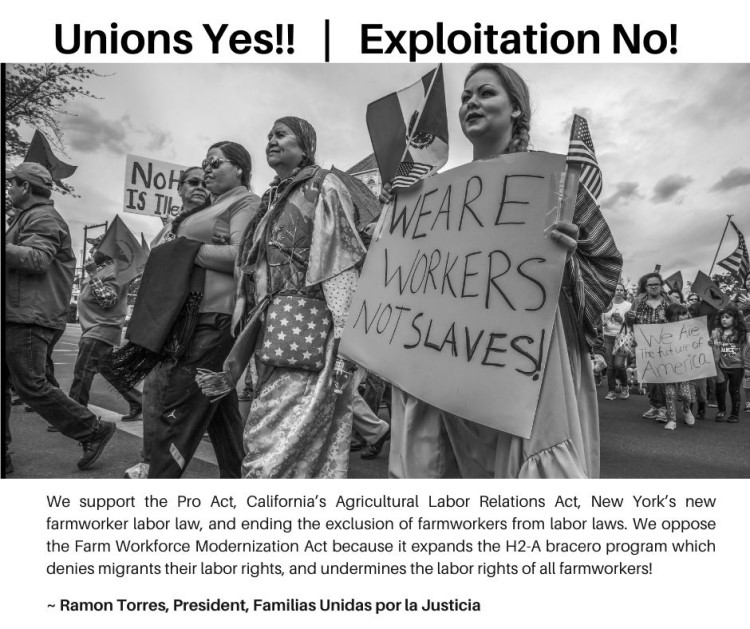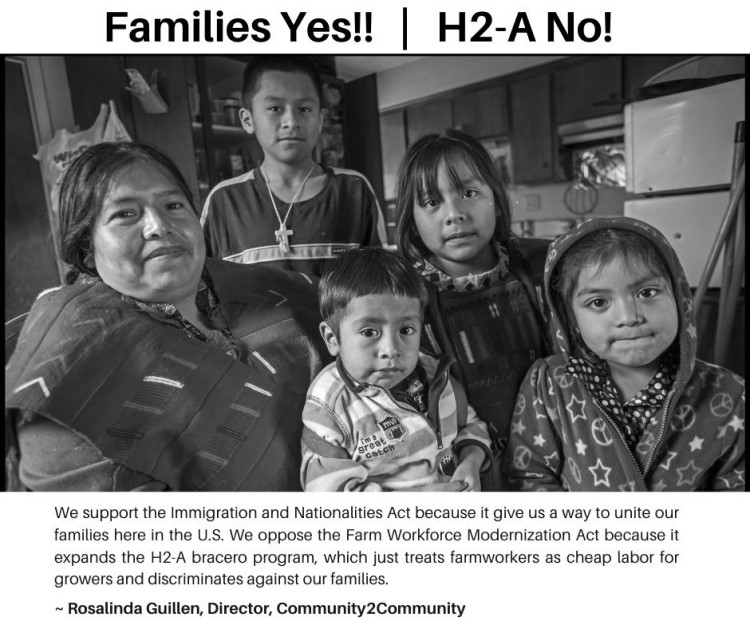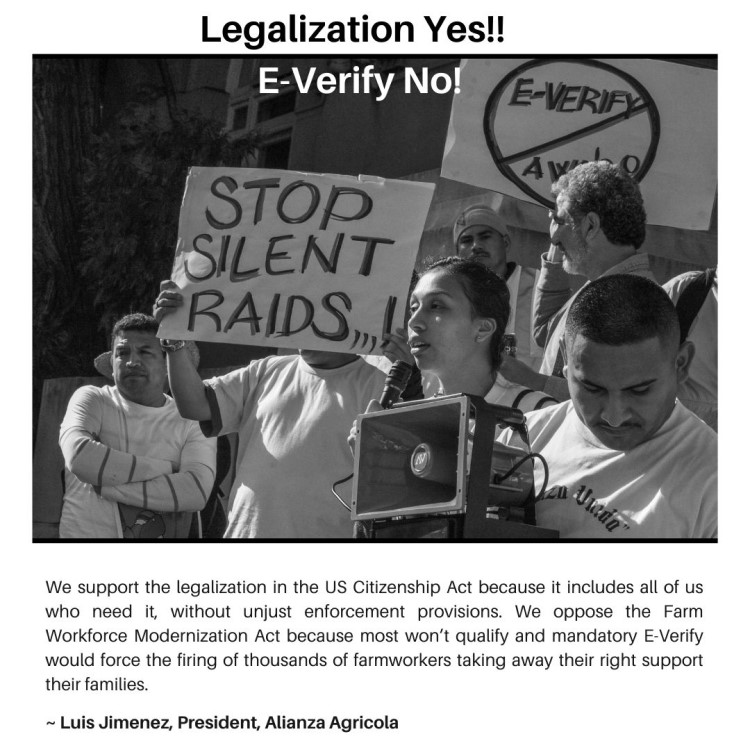
On the advocacy side of PVI’s work, we have been collaborating with the Dignity Campaign Coalition pushing against the passing of the Farm Workforce Modernization Act (FWMA).
On May 20, AFSC and nine other groups met with Sen. Padilla's staffers Rricha de Cant and Alyson Sincavage to uplift the voices of organizations that oppose FWMA. Until recently, the voice that has resonated more regarding FWMA is that of the United Farm Workers, which is in favor of the bill.
The organizations (listed at the end) that convened the virtual visit with Sen. Padilla’s staff have a long history organizing with farmworkers and advocating for their labor and human rights.
Here’s why we oppose the FMWA:
Legalization piece
- The legalization program proposed in the FWMA is a very long process and will exclude many farmworkers who can't work 100 days per year. The pathway to citizenship would exclude undocumented people that used to work in the fields but can’t or aren’t any longer. This excludes many who are reaching the end of their physical abilities to continue the work, but who have given decades of their life to our food system.
- The legalization program forces people to work for the same growers for many years. Current farmworkers would have to wait four more years, working in dangerous conditions, in a temporary designation before being eligible to get on a complicated and difficult path to citizenship, including providing documents that are difficult to keep track of and rely on ag employers to provide documentation. People who are legalized should be free to work where they choose.

Expansion of H2-A and E-Verify
- We oppose the H2-A provisions in the FWMA because the H2-A program, which has been called "close to slavery," exploits farmworkers and has a long record of labor violations. H2-A reinforces low wages in agriculture. The FMWA freezes the guaranteed H2-A wage for the first year, and the guaranteed H2-A wage can be abolished entirely. The rapid growth of the H2-A program, with more than 275,000 H2-A holders last year, hurts domestic workers. Growers are replacing domestic workers with H2-A workers. Domestic workers are pressured to work harder for less money because they fear replacement. Growers are allowed to discriminate against women and older workers by only hiring young men in the H2-A program.
- The bill does not provide for health and safety oversight or accountability by growers. The FMWA allows growers to use public funds for building barracks. Public housing funds are intended for farmworker families, not young single men in the H2-A program. FMWA is a subsidy to growers, using taxpayer money.
- The bill does not afford workers the right to organize. There is no provision in the FWMA that guarantees labor rights. Growers can and do fire H2-A workers when they protest and organize. Workers who are unjustly fired are deported and blacklisted.
- The proposed legislation makes E-Verify mandatory in all of agriculture. Advocates and agriculture representatives are both opposed to this provision. We oppose the use of E-Verify because it has been shown to be inaccurate, with many errors, and using E-Verify in agriculture is discriminatory because it is targeting mostly Latinx families. Over a million farmworkers are undocumented. Using E-Verify will prohibit them from working in agriculture, which hurts families and communities.
Our asks:
- Will Senator Padilla commit to voting no on the FWMA? When will he respond to us?
- Will Senator Padilla deliver a clean Essential Workers Act that we can support and for which we can campaign?
- As constituents from California, we want to speak with the senator.
At the meeting were:
Myrna Martinez N, Minerva Mendoza and Peniel Ibe of AFSC
Karl Kramer, San Francisco Living Wage Coalition
David Bacon, Dignity Campaign
Francisco Lozano, Frente Indigena de Organizaciones Binacionales
Fidelina Ezpinoza, Centro Binacional para el Desarrollo Indigena Oaxaqueño
Jesus Estrada, Frente Indigena de Organizaciones Binacionales State Coordinator
Sarait Martinez, Centro Binacional para el Desarrollo indigena Oaxaqueño, Executive Director
Ildi Carlisle Cummins, California Institute for Rural Studies, Executive Director
Cristel Jensen, California Institute for Rural Studies
Omar Paz, North Bay Jobs with Justice
Frank Martin del Campo, San Francisco chapter of the Labor Council for Latin American Advancement-AFL-CIO
Edgar Franks, the political director for Familias Unidas por la Justica, the union for farmworkers in Washington State; and
Fabiola Ortiz, Food Chain Workers Alliance

All photos by David Bacon